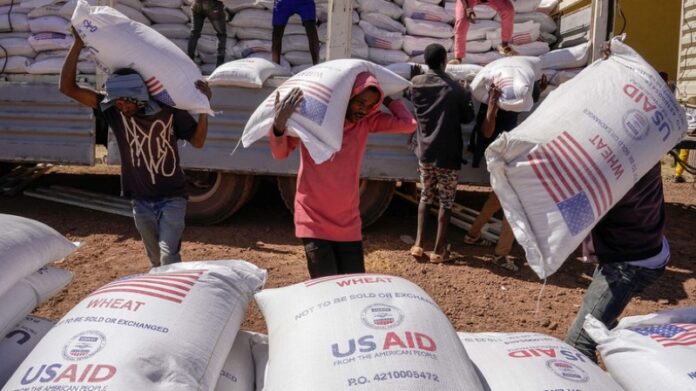
The first congressional hearing on the future of the US Agency for International Development (USAID) since President Donald Trump abruptly froze foreign assistance last month brought more bad news for Africa.
While Republicans and Democrats tussled over whether Elon Musk’s unravelling of the $40bn-a-year agency was overdue or reckless, the House Foreign Affairs Committee also offered insights into the countries and programmes that have lost favour on Capitol Hill.
‘That’s not life-saving’
Chairman Brian Mast of Florida opened the 13 February debate by denouncing several examples of what he deemed wasteful spending, including economic support programmes in North Africa.
“$22m to increase tourism in Tunisia and Egypt, that’s not life-saving,” Mast said. “$520m to pay consultants to teach people in Africa about climate change – that’s not medicine.”
Republican witness Max Primorac, a former acting assistant to the administrator in USAID’s Bureau for Humanitarian Assistance in the first Trump administration and the author of the conservative Heritage Foundation’s Project 2025 blueprint for governance, for his part singled out South Africa and Mozambique as two countries where the US shouldn’t be.
“Foreign aid is not an international welfare programme. USAID is not an international NGO. These must align with American interests and values,” Primorac said. “Congress must also do its part. Why should pro-Hamas South Africa, Beijing’s point country in Africa, receive billions of dollars in aid from us? We should support our friends instead.”
The comments come after President Trump on 7 February suspended bilateral aid to South Africa over legislation that allows the expropriation of white farmers’ land in limited circumstances.
“The government, just two months before we came here, provided their port in order to allow the Chinese navy to project their power into the western Indian Ocean,” he said. “So there has to be a much better affinity between what we do on the development aid side and diplomacy.”
Pressed on the issue during a break in the hearing, Mast said he agreed aid should be dictated by political considerations.
“If these are policies of diplomacy, right, there’s a transaction to that diplomacy, right? They need something. We want to help with that hand up, but there’s something that we need from the country or region as well,” Mast told The Africa Report.
“And if we’re being taken for granted, and their partner is China, they’re going to learn, as I’ve said to many, that they don’t know how good they had it until it’s gone.”
Pushing back
“Absolutely ridiculous.” “Utter nonsense.” “Not accurate.”
The Democrats’ witness, former USAID chief Andrew Natsios, did not mince words when asked about accusations by Trump and his government overhauler-in-chief Musk that USAID was a fundamentally corrupt agency.
A conservative who served as administrator under President George W. Bush, Natsios said he eliminated dozens of programmes Republicans did not agree with during his time in office without gutting the agency as Musk and Trump are doing now.
“Humanitarian assistance and health should be done based on need only, not on politics,” he told The Africa Report. “The rest of the budget should be allocated based on strategic interests.”
He called abandoning countries that don’t toe the US line a “mistake”.
“The visibility of USAID makes it easier for American diplomats to deal with these countries,” Natsios said. “The most influential American institution in most of these countries is not the Defence Department or the State Department. It’s USAID.”
By abandoning countries like South Africa and Mozambique, he said, the US would be ceding ground to its rivals.
“Wherever there are natural resources, the Russians are making these deals, and the Chinese,” he said. “We should be in there.”
He also defended the tourism programmes Mast attacked, pointing out that the sector accounts for more than 10% of jobs in Egypt.
Winners and losers
Some African governments will no doubt be pleased with the changes at USAID.
Mast opened the hearing by referencing a recent exchange with Ugandan Ambassador to the US Robie Kakonge, who has criticised USAID support for LGBT initiatives after the country passed its anti-homosexuality law.
During a debate last month at the US Institute of Peace, he said, Kakonge “stood up and said, these programmes were not doing anything to improve relations between our nations”.
African leaders have also opposed the climate programmes that curtail the development of fossil fuels. Natsios said he agreed changes were needed there as well.
“I think we should move from green technology to climate adaptation, because it’s going to get warmer, and these countries can’t deal with it unless we breed seeds that can handle higher temperatures. The water supply, many of [which] have recently collapsed, and the river systems are in trouble because of climate change,” he said.
“USAID is not going to have any real effect on greenhouse emissions,” Natsios told The Africa Report, “but they can affect the ability of the country to absorb the higher temperatures.”
The Africa Report


























































